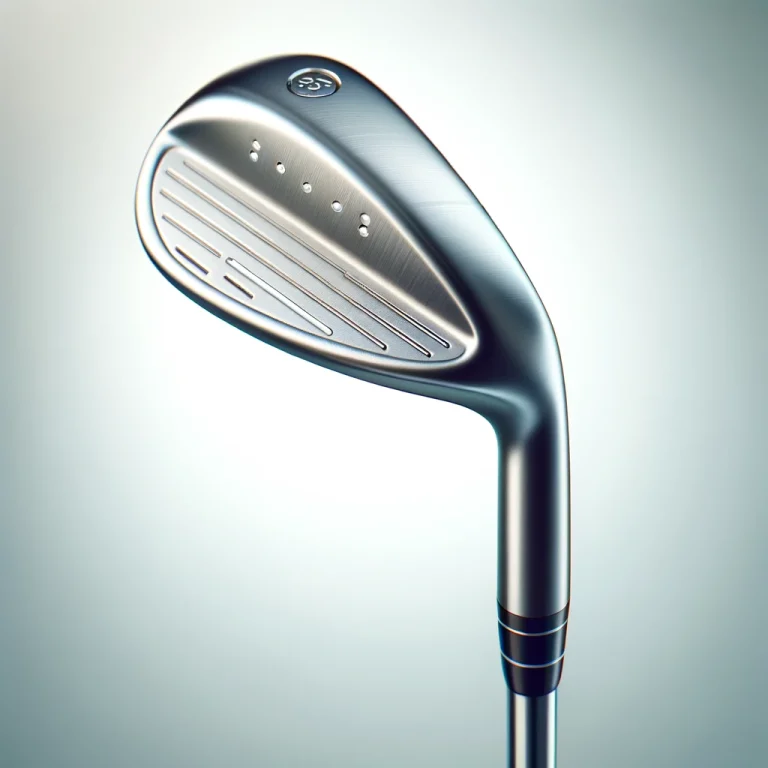Discover the Top Fairway Wood for Mid Handicappers – Improve Your Golf Game Now!
.jpg)
Are you a mid handicapper looking to up your game on the fairway? Look no further! In this article, we will explore the top fairway woods for players like you, as well as the key factors to consider when choosing the perfect club.
From matching your fairway wood with your driver to troubleshooting launch issues, we’ve got you covered. Stay tuned for expert advice on selecting the ideal shaft, addressing common problems like fades and slices, and much more. Let’s get started!
Key Takeaways:
Introduction to Fairway Woods for Mid Handicappers
Fairway woods are essential clubs for mid handicappers seeking forgiveness and distance on the golf course. As mid handicappers, golfers often require clubs that offer a balance of technology and performance, making fairway woods a crucial part of their arsenal.
These clubs are designed to provide players with a versatile option for various shot scenarios, particularly from the fairway and rough. The technology incorporated into modern fairway woods enhances stability, launch, and distance consistency. Features such as low center of gravity, adjustable weights, and high-strength materials contribute to the club’s forgiving nature.
For mid handicappers aiming to improve their game, fairway woods offer a blend of precision and power, allowing for effective long shots without compromising on control. The sleek club design optimizes aerodynamics, reducing drag and increasing swing speed for enhanced distance off the tee or fairway.
The Quick List of Best Fairway Woods
The selection of best fairway woods for mid handicappers includes top models such as the TaylorMade, Callaway, Paradym Ai Smoke Max, Cobra Darkspeed X, Ping G430 Max, Srixon ZX Mk II, Mizuno ST-Z 230, Titleist TSR2, and Wilson Launch Pad. These models have garnered positive reviews for their performance and features.
Each fairway wood model brings its unique set of attributes to cater to the varying needs of mid handicappers. The TaylorMade fairway wood is praised for its exceptional distance and forgiveness, making it ideal for players seeking long, straight shots.
On the other hand, the Callaway model boasts a versatile design, allowing players to confidently approach various lies on the course.
Players have commended the Paradym Ai Smoke Max for its sleek aesthetics and impressive ball speed off the tee, enhancing overall performance.
The Cobra Darkspeed X stands out for its stability and control, providing a consistent feel throughout the swing.
For those valuing forgiveness and precision, the Ping G430 Max has received acclaim for its accuracy and playability, while the Srixon ZX Mk II impresses with its improved adjustability features, catering to player preferences.
The Mizuno ST-Z 230 offers a blend of power and workability, appealing to players looking to shape their shots effectively.
With the Titleist TSR2, golfers appreciate its high launch capabilities and spin control, aiding in achieving optimal trajectory and distance.
The Wilson Launch Pad has gained popularity among mid handicappers for its ease of use and forgiveness, helping players elevate their performance on the fairway.
Factors to Consider When Choosing a Fairway Wood
Choosing the right fairway wood involves considering various factors such as performance, forgiveness, speed, features, and player level. Mid handicappers should assess the specifications, conduct testing, and weigh reasons to buy or avoid specific models based on their individual needs and preferences.
In terms of assessing the performance of fairway woods, mid handicappers need to focus on launch angle, spin rates, and overall distance capabilities. These metrics play a crucial role in determining how well a fairway wood suits a player’s swing characteristics and desired ball flight.
- Finding a fairway wood with optimal forgiveness levels is essential for mid handicappers as it can help alleviate mis-hits and off-center shots, resulting in improved consistency and accuracy on the course.
- Speed capabilities, including ball speed and clubhead speed potential, are vital considerations for mid handicappers seeking distance gains and enhanced performance off the tee and fairway.
- Exploring unique features like adjustable loft settings, weight distribution systems, and innovative face technologies can provide mid handicappers with customization options to fine-tune their fairway wood for optimal performance.
Matching the Fairway Wood with Your Driver
Ensuring that your fairway wood complements your driver is crucial for optimizing launch and distance consistency on the course. Mid handicappers should pay attention to the compatibility between their fairway woods and drivers to enhance their overall performance.
Determining if You Need a Standard or Low-Spin Fairway Wood
Mid handicappers should assess whether they require a standard or low-spin fairway wood based on their launch preferences and distance objectives. Understanding the differences between these types of woods can help players optimize their performance on the golf course.
Usage from Tee vs. Fairway
Understanding the optimal usage of fairway woods from the tee versus the fairway is essential for mid handicappers seeking consistent launch and shot execution. Players should adapt their strategies based on the lie and distance requirements to maximize the club’s effectiveness.
Troubleshooting Launch Issues with Fairway Woods
Mid handicappers facing launch issues with their fairway woods can benefit from troubleshooting techniques to enhance performance and optimize launch conditions. By addressing factors such as swing speed, club forgiveness, and shot speed, players can overcome common challenges and improve their game.
Addressing Fade or Slice Problems
Mid handicappers plagued by fade or slice issues with their fairway woods should focus on techniques to address these common challenges. By enhancing forgiveness, adjusting swing mechanics, and optimizing club performance, players can rectify ball flight inconsistencies and improve their overall game.
Fairway Woods for Slower Swing Speeds
Mid handicappers with slower swing speeds can benefit from fairway woods designed to enhance forgiveness and performance for their game. Choosing clubs tailored to lower swing velocities can help players achieve better distance and consistency on their shots.
Understanding the Importance of Shaft Selection
Choosing the right shaft for fairway woods is crucial for mid handicappers seeking optimal performance, forgiveness, and launch characteristics. Player preferences, swing dynamics, and technology advancements play key roles in determining the ideal shaft for individual needs.
Differences Between Models in the Same Family
Analyzing the distinctions between models in the same fairway wood family can help mid handicappers pinpoint the technology and features that best suit their playing style. Understanding the nuances within a brand’s lineup enables players to make informed decisions based on their individual preferences.
Determining the Ideal Number of Fairway Woods
Mid handicappers often face the decision of determining the optimal number of fairway woods to carry in their bag based on their playing level and preferences. Assessing the benefits of different wood configurations can help players streamline their club selection and enhance their on-course performance.
Testing Criteria for Fairway Woods
Establishing testing criteria for fairway woods is essential for mid handicappers looking to evaluate specifications, performance metrics, and distance outcomes.
When assessing fairway woods, mid handicappers should consider key specifications such as loft angle, club length, and shaft material to ensure the club meets their desired characteristics. Paying attention to performance attributes like forgiveness, ball flight trajectory, and workability can help players determine how a club will perform under different playing conditions. Conducting distance tests on the course can provide valuable insights into how each fairway wood translates swing power into distance on the fairway.
FAQs About Fairway Woods for Mid Handicappers
Frequently Asked Questions about fairway woods for mid handicappers cover common queries related to club selection, performance enhancements, and player level considerations. Addressing these FAQs can provide valuable insights for players looking to optimize their fairway wood choices and game strategies.
One important factor for mid handicappers when choosing a fairway wood is the club’s loft angle. Higher lofted fairway woods are generally easier to launch and can help in achieving better distance and control, especially for players with moderate swing speeds.
Another crucial aspect is the club’s shaft flex, as it influences the trajectory and accuracy of shots. Mid handicappers often benefit from a flex that matches their swing speed and transition tempo, allowing for more consistency in their ball striking and shot dispersion.
What are the Key Considerations for Choosing a Fairway Wood?
Mid handicappers must focus on key considerations when choosing fairway woods to enhance their performance on the course. Factors such as forgiveness, distance, player level, and personal preferences play pivotal roles in selecting the right clubs for optimal gameplay.
Forgiveness in fairway woods is crucial for mid handicappers, offering a larger sweet spot and reducing the impact of off-center hits. This leads to more consistent shots and improved accuracy on the fairways.
The distance enhancements provided by modern fairway woods can help mid handicappers bridge the gap between their irons and driver, allowing for more versatile shot options.
Understanding one’s player proficiency level is essential; mid handicappers should opt for clubs that match their skill level, balancing forgiveness with workability.
Personal preferences such as club head shape, weight distribution, and shaft material also need to be considered, as they directly impact a player’s comfort and performance on the course.
Which Brands Offer the Best Fairway Woods for Mid Handicappers?
Several brands cater to mid handicappers by offering the best fairway woods tailored to their needs, including TaylorMade, Callaway, Cobra, Ping, Srixon, Mizuno, Titleist, Wilson, and GlobalGolf. These brands have gained recognition for producing top-quality clubs that enhance player performance and enjoyment on the course.
Among these brands, TaylorMade stands out for its innovative technologies such as Twist Face and Speed Pocket, providing forgiveness and increased distance.
Callaway is known for its Jailbreak Technology, which enhances ball speed and distance consistency, appealing to mid handicappers seeking accuracy.
Cobra offers adjustable loft settings in their fairway woods, giving players versatility in their shots and customization based on course conditions.
Moreover, Ping is recognized for its easy-to-hit fairway woods with high forgiveness, ideal for mid handicappers looking to improve their game.
Conclusion
Fairway woods play a vital role in the game of mid handicappers, offering forgiveness, distance, and technology-driven performance benefits. Choosing the right fairway wood is crucial for enhancing a player’s overall experience on the golf course.
When selecting fairway woods, mid handicappers need to consider various factors, including shaft material, loft angle, and clubhead design. These clubs are designed to provide players with the versatility to tackle various lies on the course, making them critical tools for achieving optimal performance. The forgiving nature of modern fairway woods allows players to hit off-center shots with greater consistency and accuracy, resulting in improved game satisfaction. The advancements in club technology have enabled fairway woods to offer enhanced distance capabilities, giving players the confidence to take on challenging shots with ease.
Subscribe to Stay Updated on Golf Equipment
Subscribe to receive the latest updates on golf equipment, including fairway woods designed for mid handicappers. Stay informed about new releases, technology innovations, and performance enhancements to elevate your game on the course.
By subscribing, you can ensure you are equipped with the most optimal gear to improve your swings and overall gameplay. Keeping abreast of cutting-edge advancements in fairway wood technology can give you a competitive edge on the fairway. Stay ahead of the curve when it comes to player engagement, technological breakthroughs, and gear innovations that can make a tangible difference in your performance. Regular updates will keep you informed on the latest trends, ensuring that you have access to the best tools to enhance your golfing experience.
Frequently Asked Questions
What is the best fairway wood for a mid handicapper?
The best fairway wood for a mid handicapper will depend on your specific swing and playing style. However, some popular options include the TaylorMade M6, Callaway Rogue, and Titleist TS3.
What features should I look for in a fairway wood as a mid handicapper?
As a mid handicapper, you should look for a fairway wood with forgiving technology, a low center of gravity, and adjustable loft options. These features can help you achieve more distance and control on your shots.
Which brand offers the best fairway woods for mid handicappers?
It ultimately depends on personal preference and what works best for your game. However, some brands that are known for producing high-quality fairway woods for mid handicappers include TaylorMade, Callaway, Titleist, and Cobra.
Can a mid handicapper use a fairway wood instead of a driver?
Yes, mid handicappers can certainly use a fairway wood instead of a driver off the tee. In fact, many mid handicappers prefer using a fairway wood for its accuracy and control over a driver.
What is the ideal loft for a fairway wood for a mid handicapper?
The ideal loft for a fairway wood for a mid handicapper will depend on personal preference and the specific course conditions you are playing on. Generally, a mid handicapper can benefit from a fairway wood with a loft between 15 to 18 degrees.
Should a mid handicapper choose a steel or graphite shaft for their fairway wood?
It ultimately depends on the individual golfer’s swing and preferences. However, many mid handicappers tend to prefer graphite shafts for their fairway woods as they offer more flexibility and forgiveness, which can help improve distance and consistency.






![The Best Callaway Irons for Beginners – Improve Your Golf Game! [2024]](https://www.fairwayfindings.com/wp-content/uploads/2024/02/Best-Callaway-Irons-for-Beginners-2-768x768.webp)